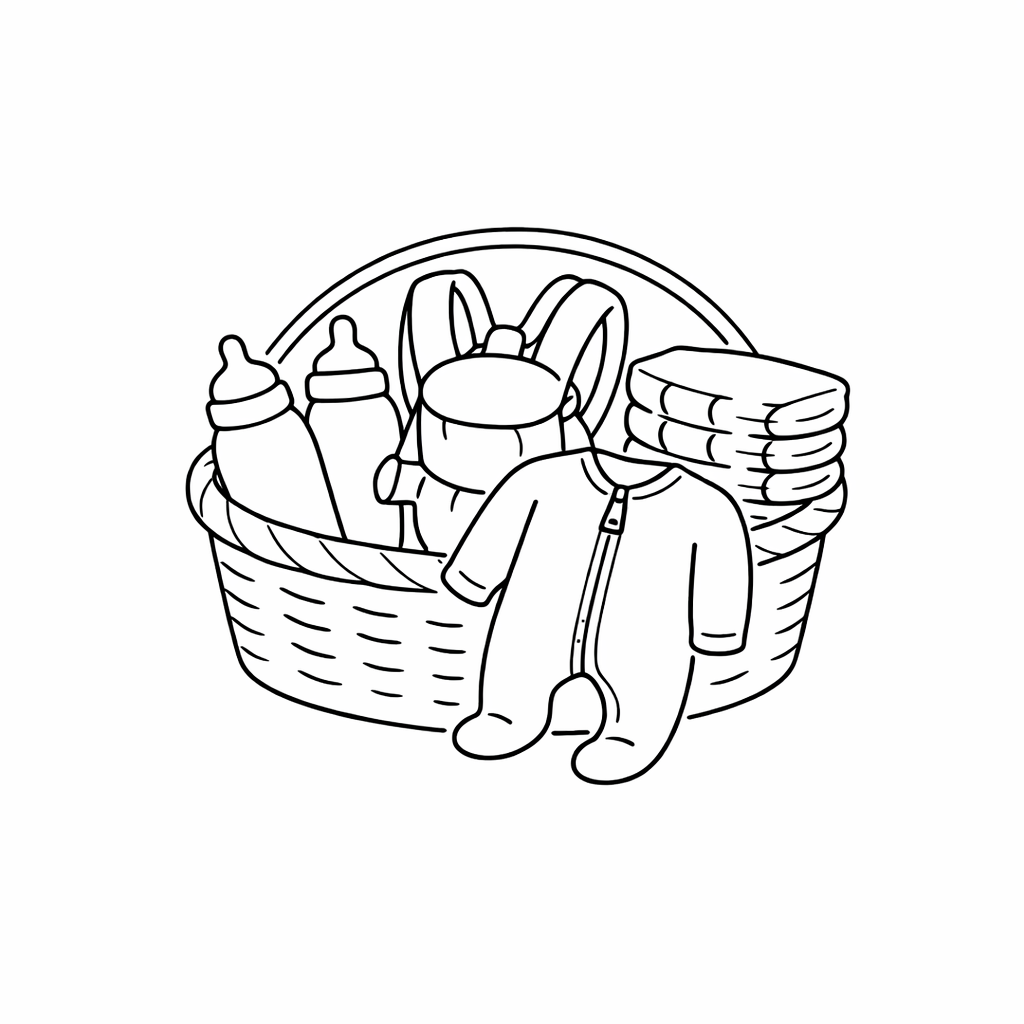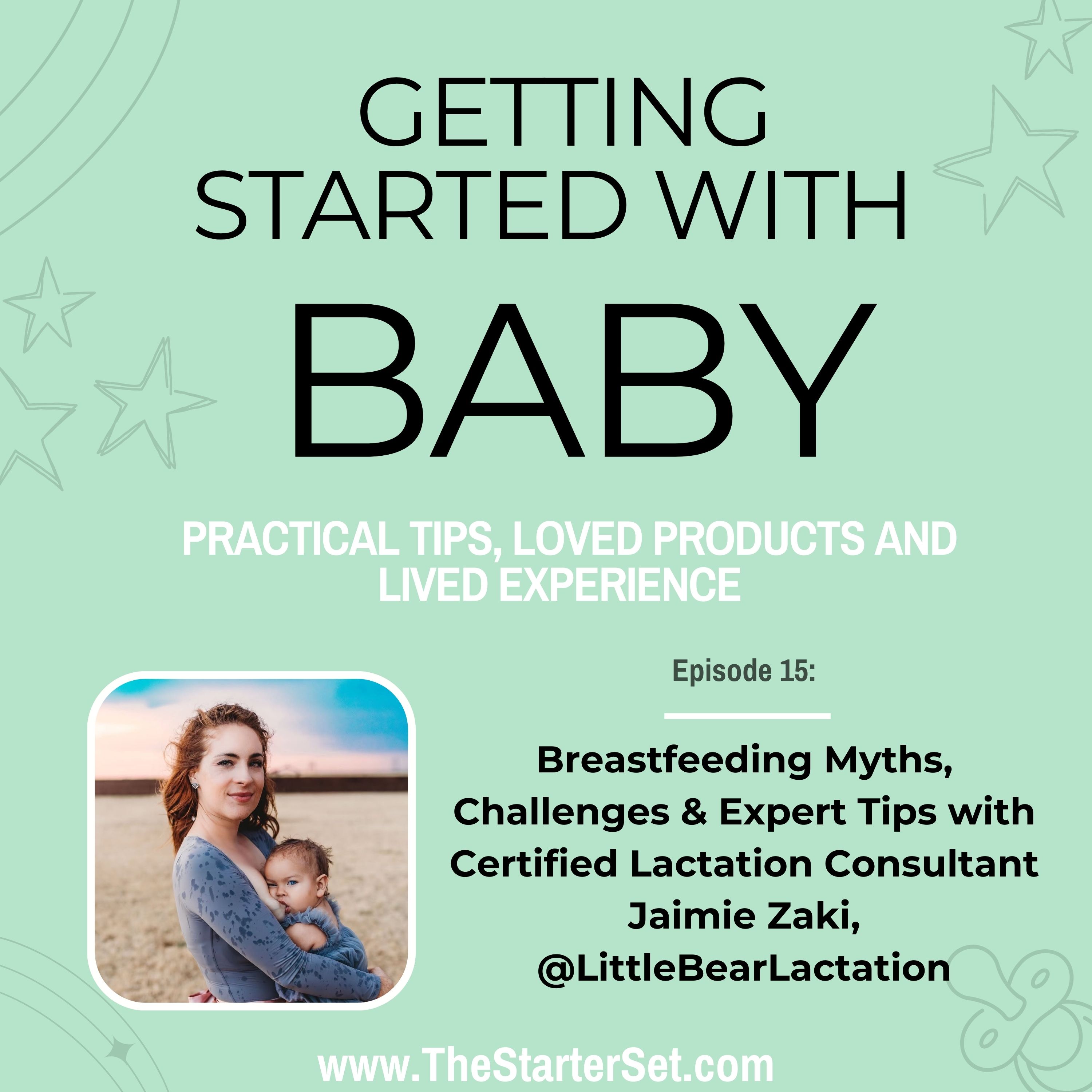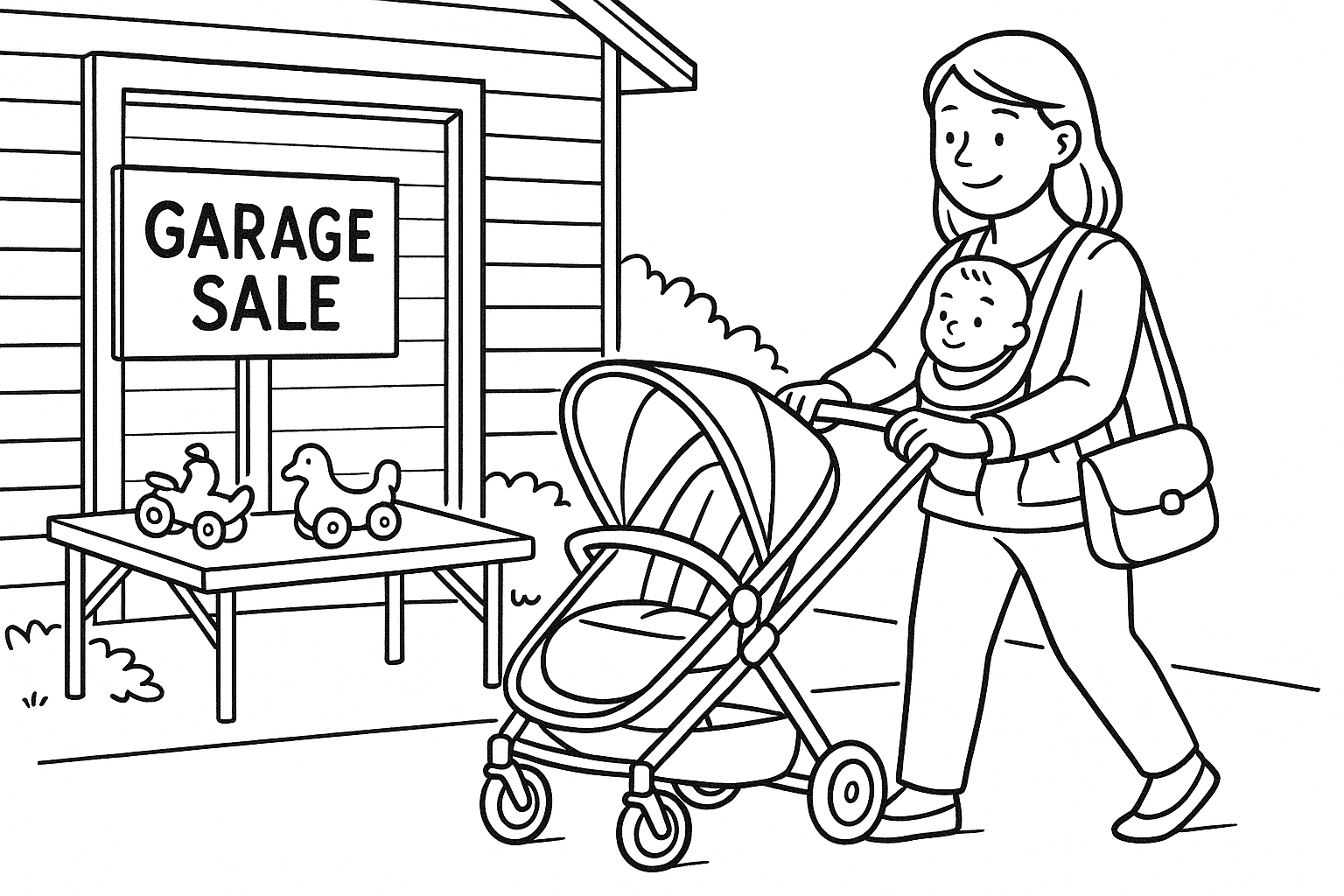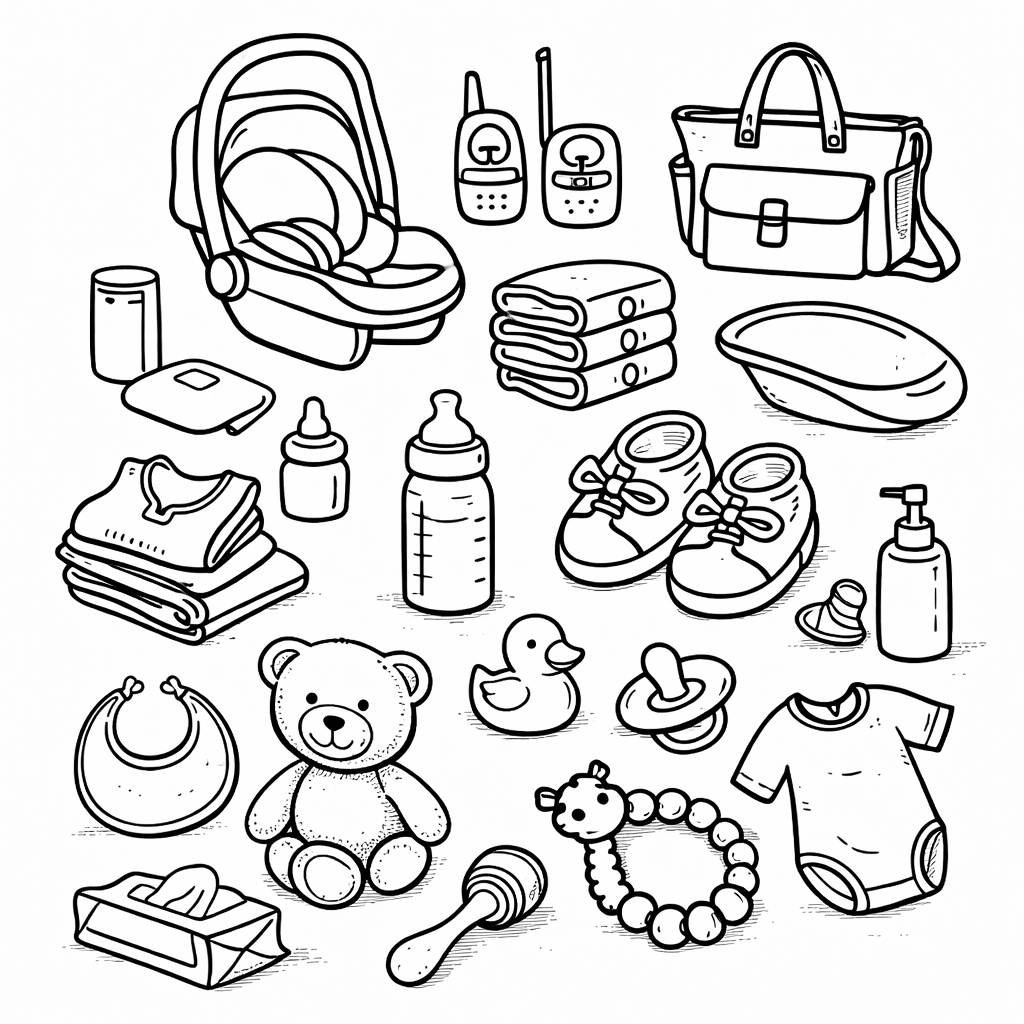* Note: Information in this episode is based on Jane and Quentin's personal experiences and is provided for educational and entertainment purposes only. Information in the podcast does not constitute professional advice. We encourage you to independently evaluate any content and consult with appropriate professionals as needed for your specific circumstances.
The Quotables
On expecting it to be hard:
"I remember asking parents of young kids, 'Was it harder than you expected?' No one said easier—literally everyone said it was harder." — Jane
On taking care of yourself:
"You have to take care of yourself in order to take care of others, and you're taking care of an infant at this time. If you don't find ways to keep yourself grounded, it's going to be tough." — Quentin
The Takeaways
- Expect it to be hard: Your experience will be uniquely yours. It will also likely be harder than you expect.
- Everything is a phase: The transition from zero to one kid isn't just about learning to change diapers—it's about fundamentally restructuring your brain around a tiny human who depends on you for everything. The mental load is real, and the sleep deprivation makes everything feel insurmountable. Remembering that "everything is a phase" becomes your lifeline when you're really in it during those first few weeks.
- Build your village: Building your village is essential. Whether that's family, neighbors, or a group of parents going through the exact same phase, having people who understand what you're experiencing makes the difference between feeling isolated and feeling supported. Plus, it doesn’t hurt to have extra hands around to give you a break.
- Take advice with a grain of salt: The thing about all that well-meaning advice you'll get -- treat it like data points, not law. What works for your sister's baby might be completely wrong for yours, and that's normal. Your job isn't to implement everyone else's playbook—it's to figure out what works for your specific little human.
- Don’t forget to also take care of you: Taking care of yourself isn't selfish – it’s strategic. You can't pour from an empty cup, and pretending you don't need support or rest doesn't make you a better parent—it just makes you a more exhausted one.
Jane and Quentin’s Baby Gear Picks
The Full Conversation
[edited from audio transcript for clarity]
Jane: Have you ever wondered how it's going for other parents? Are they struggling with the same things you are? How were those first few weeks for them?
Today we're chatting with my co-founder, Quentin Tai. Quentin is a girl dad to a wonderful four-year-old, and he's working with me to create The Starter Set—a new service for parents that will help them find everything they need for each baby milestone, personalized for their families. Less research, less stress, more time to spend on the things that matter.
On today's show, we're going to talk about The Starter Set and what inspired it, but we'll also discuss what those first few weeks with baby were like for us and the advice we live by—at least some of the time.
This is "Getting Started With Baby," the podcast that brings you practical tips, loved products, and lived experience from parents who've been there. Brought to you by The Starter Set. I'm your host, Jane, mom to two on the other side of two-under-two, and I'm working to make this parenting journey a little bit easier. Let's get into it.
Welcome, Quentin. Can you tell us a little bit about yourself and your family?
Quentin: Thanks for having me. I'm 38, have a four-year-old daughter and a 12-year-old dog. We live in Baltimore and are interested in having another child.
Jane: It's funny—people ask me about having two kids so close in age, assuming the second must have been tougher. But I found that transition from zero to one to be super hard, while the transition from one to two was actually glorious. I felt like I could really enjoy that second infant phase and find the peacefulness in it.
Quentin: Yeah, very much so. I actually really enjoyed the zero-to-six month phase. Not all of it obviously, but I look back on it fondly.
Jane: I'm glad I got to have that moment to look back fondly as well because that first time I was definitely very anxious.
So as we mentioned in the intro, we're the founders of The Starter Set, which is a service we're working on to help parents find just the right things at the right time, personalized for their families. I want to share a little bit about what inspired it.
It was really inspired by my own parenting journey. I was balancing a high-pressure job with two kids under two, and I just found myself feeling like I was falling behind. I was forgetting to order the next size up in clothes or forgetting what milestone we were on. My brain just felt so full. I used to joke that I had so many things going on, I was leaving remote controls in the refrigerator—I just couldn't keep it together.
I found myself doing research for the kids at midnight after I'd finished emails and everyone was asleep. I was looking at travel strollers, high chairs, convertible car seats, spending hours comparing things on retail sites and blogs, trying to figure out what influencers thought. It just didn't feel good being in that infinite research loop.
I found myself wishing there was something out there that just knew me, understood my family, and could help recommend stuff. That's what we're trying to do here. When you think about the baby registry phase—which is where we're starting with the service—you can be looking at as many as 80 different products and spending more than 40 hours putting that registry together. It's just a lot.
Quentin, you joined me pretty recently. Tell me what inspired you to want to build this.
Quentin: As a parent of a young child and someone who has many friends who also recently had children, parenting just completely consumes your life. That's all we talk about now—what's the next thing we're going to do with her? Who's doing bedtime today? What's she going to wear tomorrow? All our conversations with friends are the same thing—it's all about the kids.
I felt that anything we could do to take away from the burden of parenthood and make it more enjoyable would be a very noble problem to go after. And selfishly, it would hopefully be something that would help me and my friends.
Jane: I can relate to that experience. It's interesting how you described it as all-consuming and how it becomes everything you talk about. My husband and I joke about how when we finally make it out to a date night, we spend all the time talking about how adorable the kids are. I guess that's just the phase of life we're in.
Talk to me about those first weeks of becoming a parent and what that was like for you and your wife.
Quentin: The first few weeks were definitely harder than expected for both of us. We took classes, had friends who had recently had children, had our parents around to tell us stories of what we were like when we were little—but nothing's really the same as actually doing it. It definitely was much harder than we expected.
The hardest part for me was the mental aspect. Obviously, the lack of sleep doesn't help, but it's this big new thing you're transitioning into. There are so many fears, and on top of all that, you're figuring out how to rebalance everything in your life from a mental perspective. What is most important to me now? This kid, keeping this kid alive and making sure she thrives. Where do my dreams fall in comparison to that? You have to figure out how to place all of that. It was a very draining time, definitely harder than expected. But we got through it, as everyone will.
Jane: It's super interesting because I remember asking parents of young kids, "Was it harder than you expected?" No one said easier—literally everyone said it was harder. I thought to myself, "We've all been doing this for a long time as humans, we'll figure it out."
But it's such a big, momentous life change. You exit the hospital or birthing center with this baby, they check that you've placed the baby in the car seat correctly, but then they just send you on your way—"good luck!” It's interesting because everyone will tell you it's harder, and then you go through it. The lack of sleep is such a real contributing factor. No matter how prepared you were, how much you wanted the baby, or what else is going on in your life, it's such a big change that you can't really think about how you're going to react or deal with all the changes coming, plus lack of sleep, before you go through it.
Quentin: I'd also add that, like I mentioned earlier, I look back fondly on the first few months compared to my wife—she looks back on it and is just very happy that it's past. It was a really rough time for her. I can distinctly remember trying to put my daughter down at one point, holding her in a rocking chair and thinking about when she gets married—just something super mushy like that. I guess that's how I dealt with the pain and fatigue of the current moment.
Jane: I love that. I think that's a good segue to thinking about what helped you navigate those early days. One thing your story makes me think about is how everyone talks about everything in babyhood being "a phase." When you're in those first six to eight weeks, that phase—probably because of the lack of sleep—feels like it will never end.
I remember getting a moment to walk our dog and sit outside by ourselves in those early days after our first, and my husband and I were like, "Did we ruin our lives?" I think we were three weeks in or something. It's funny when you think about it in retrospect. You were going through it, but it really calls into question that stuff really is just a phase. We'll get through it, and living through it gives you that perspective. Now when my toddler's screaming on the floor, I think, "They'll get over it. We'll get through this."
You said your wife had a different experience. What helped pull you through?
Quentin: Well, first of all, we were very fortunate and had both sets of grandparents available to help. My mom stayed with us for a month, then Liz's mom would come and stay for a few days to a week at a time. Obviously, that helped a lot.
The thing that helped the most—they always say it takes a village, and that's in reference to raising kids. I think it's important to create your village. I live in Baltimore, and most of my friends back home are an hour south of me. We weren't able to go back as often as I'd like, but I think it's still important to keep in touch with them, especially because we were all new parents going through the same thing.
The thing that really helped me was talking to them and hearing about what they were going through. I think that was really important to help us not feel alone, like we were doing something impossible or that no one's ever done before. Creating your village is the piece of advice I would give.
Jane: I think that's good advice. I know for some people, especially the way work is in the US, sometimes people aren't close to their families, so they're really in this position of creating their own village. Maybe before the baby, they were used to figuring stuff out on their own.
I relate to that advice as well. In Seattle where I'm located, there's a program called PEPs that organizes groups for new moms, expecting moms, and parents. It helps create a group of people who are going through the exact same phase as you with kids around your neighborhood. You end up in this group with people who are really in it at the same place you are, and everybody shares different experiences and stories.
I had my parents come help and had some friends who had kids at that point, but there's something about talking to people who are in the exact same phase as you. It makes such a big difference—partly because it helps put things in perspective like you said, and partly because you can give each other advice.
Quentin: Exactly.
Jane: One thing that happens when you have a baby is you get inundated with advice—some helpful, some not very helpful, some neutral. Was there a piece of advice that really resonated with you that you live by?
Quentin: I think the answer is no. What I came away with regarding all the advice everyone gave was that it's not always going to work for you. Everyone's kid is different—they have different preferences and different things they need or want. What you should do is get as much information as you can from other people. Definitely listen to all the advice, but think of it as data points that you can maybe use to help yourself, and if not yourself, then maybe someone else who's a new parent.
Jane: For me, the advice I carry around is what we shared earlier—that everything is a phase. I still use it to this day with my kids being two and a half and four. These days we're deep in the twos with my son, who has decided that for everything we say the answer is “no,” and we can't possibly make anything easy right now. Still to this day, I remind myself that everything is a phase.
The other piece of advice I remember getting—this one's for the very early stage when you have this teeny tiny baby who seems so fragile—someone told me that babies certainly are fragile and you have to be careful, but they're not as fragile as people sometimes make them out to be. For new parents who get very anxious about doing things wrong or when the baby cries, that piece of advice from an experienced parent helped me feel like everything will be okay. We're going to be careful, but you have to get used to holding the baby, changing the baby, bathing the baby, and not being nervous about each phase. It helped ground me that this is a person and not a porcelain egg.
Quentin: I actually have a story about that. We were at the hospital probably three hours after my daughter was born, and I think she was crying. We weren't sure what to do, so we called a nurse over and said, "Hey, is something wrong? Can you take a look at her?" She just picks her up, holds her up, tilts her to one side and tilts her to the other direction and says, "Nope, she looks fine," and hands her back.
We were horrified—we were like, "What?" But looking back, obviously this person is very experienced. She's around babies literally the entire day for her job. In the moment, we had a hard time realizing that this was very okay, that the baby isn't that fragile. But it's much easier to understand that the second time around.
Jane: We've talked about advice, which is always helpful, but as we know, The Starter Set is really going to be about helping parents sort through the products and services available for their families. As a result, we have to ask: was there a product or service that was a gamechanger in your family?
Quentin: I loved the swaddle and thought it was amazing. I think we had one with Velcro, but I preferred the one that was just extra stretchy and soft. I just wrapped that thing around her and tucked it in, and it seemed to always have a calming effect. For me it would be the swaddle—a super soft and stretchy one.
Jane: Oh man, you went full baby burrito! You did not do the Velcro, it sounds like. That is very impressive—I could not get little flailing baby limbs into a non-Velcro swaddle. Was there a particular version of that non-Velcro swaddle that you'd recommend?
Quentin: We really liked using the Copper Pearl swaddle blankets. They were all just so soft, and we always gave those out as gifts to any of our friends that also had kids.
Jane: That's funny—the things from my favorites list also make it to all the people I know who are pregnant as well.
For us, my kids were not daytime sleepers and they did not like being worn as babies. That meant it was very hard to get anything done during the day. We really needed places for the baby to hang out so we could do something at some point. We really swore by the Graco Simple Sway swing because our kids loved swinging. They would relax, there'd be music playing, and it was the only place during the day that they could be relaxed and entertained for a moment while I washed a dish or something. Because it's small, it could be moved around places.
Coincidentally, they also did not really enjoy bouncer chairs—they really wanted the swinging motion.
Quentin: Oh, interesting.
Jane: That's another one of those "every parent will have different experiences" situations, because some kids only want to be in the bouncer chair, some kids only want to be in a swing, some kids don't want to be strapped into anything, some kids want to be worn around. That one ends up being such a baby preference situation.
What about a product or service that you thought you needed but turns out you really didn't need, or didn't need as early as you got it?
Quentin: We were gifted the mamaRoo Baby Swing and that thing was completely useless for us. I think it was mostly the mechanical sound that it made, or it just wasn't smooth enough. The motion itself was smooth enough, but I think my daughter just preferred to be carried. Even now when I'm just standing, I'll still bounce a little bit, especially if I see a baby or I'm thinking about babies at all.
Jane: Have you heard of the Lamaze Freddie the Firefly? It was gifted to me by my neighbor who had just had a baby—it wasn't even on my radar. Now I give it to everybody. Basically, it's this firefly that has black and white patterns on one side and crinkly sounds and mirrors and teething rings. It's one of those all-in-one toys, because initially babies can only see sharp contrast and things that are close to them. Every baby I've known has been super obsessed with that toy, but every other toy took a while. Don't overdo the toys early on is my advice.
Quentin: Agreed. I think all of our toys were mostly played with by our friends' kids who were a few months older when they came over.
Jane: It seems so obvious in retrospect. So many toys are marketed to you in those early days. Of course you want the beautiful stuffed bunny, but your kid's not going to care about that for maybe the entire first year. Depends on the kid of course.
Jane: That covers everything we wanted to discuss today. Thank you, Quentin, for joining us for this very first episode of "Getting Started with Baby." I'd love to hear your takeaway, but mine from this conversation is that everyone's going to have a different experience. Try to get advice from that village, build your own village, hear from other parents—it's going to be really important. But again, your experience will probably be some different, unique version of all of that.
Quentin: Yeah, I think the same thing. The takeaway would be that since everything is so unique to each person, do what works for you. Do what you need to survive the tough times. You have to take care of yourself in order to take care of others, and you're taking care of an infant at this time. If you don't find ways to keep yourself grounded, it's going to be tough.
Jane: Yeah, take care of yourself as well. Absolutely, well said. I think that's something people very often forget to do or feel guilty about doing once you have an infant. You do need to make time for yourself and take care of yourself, because like you said, if you don't take care of yourself, you're going to have a hard time taking care of others.
What's next for The Starter Set is that we're continuing to build and working really hard to get this launched for parents out there. Look out for our first product, which will be a personalized baby registry. If you're interested in learning more about what we're building or following along on our progress, please go to TheStarterSet.com and subscribe to our mailing list.
Thank you so much for listening.













.png)